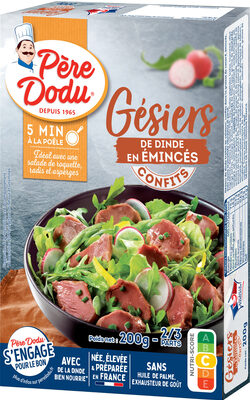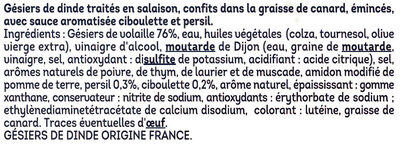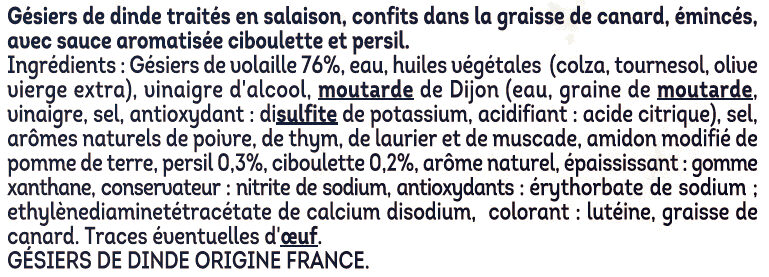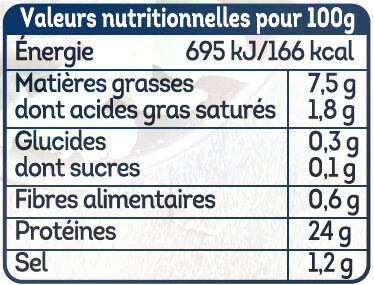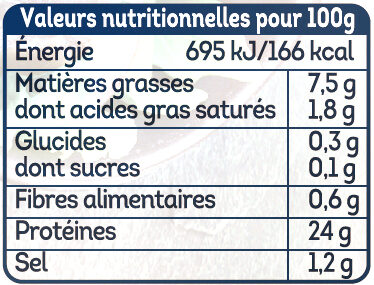Gésiers émincés confits sauce ciboulette et persil - Douce france - 200 g
This product page is not complete. You can help to complete it by editing it and adding more data from the photos we have, or by taking more photos using the app for Android or iPhone/iPad. Thank you!
×
Some of the data for this product has been provided directly by the manufacturer pere-dodu.
Barcode: 3435660630071 (EAN / EAN-13)
Common name: Gésiers de dinde traités en salaison, confits dans la graisse de canard, émincés, avec sauce aromatisée ciboulette et persil.
Quantity: 200 g
Packaging: Sleeve
Brands: Douce france, Père Dodu
Categories: Fish and meat and eggs, Offals, fr:Confits
Labels, certifications, awards: No flavour enhancer, No palm oil, Nutriscore, Nutriscore Grade C
Origin of ingredients: France
Manufacturing or processing places: Galliance Elaborés 6 Allée des Penières, 85670 FALLERON
Traceability code: FR 85.086.001 CE - Falleron (Vendée, France)
Link to the product page on the official site of the producer: https://www.peredodu.fr/la-volaille-deja...
Stores: Magasins U
Countries where sold: France
Matching with your preferences
Environment
Packaging
Transportation
Report a problem
Data sources
Product added on by kiliweb
Last edit of product page on by roboto-app.
Product page also edited by asmoth, magasins-u, openfoodfacts-contributors, org-pere-dodu, packbot, yuka.U3FrOFN2bFppTjRsZ1BBaW9rTC81OWt0d2J5elZ6T3BNN2NYSVE9PQ.
